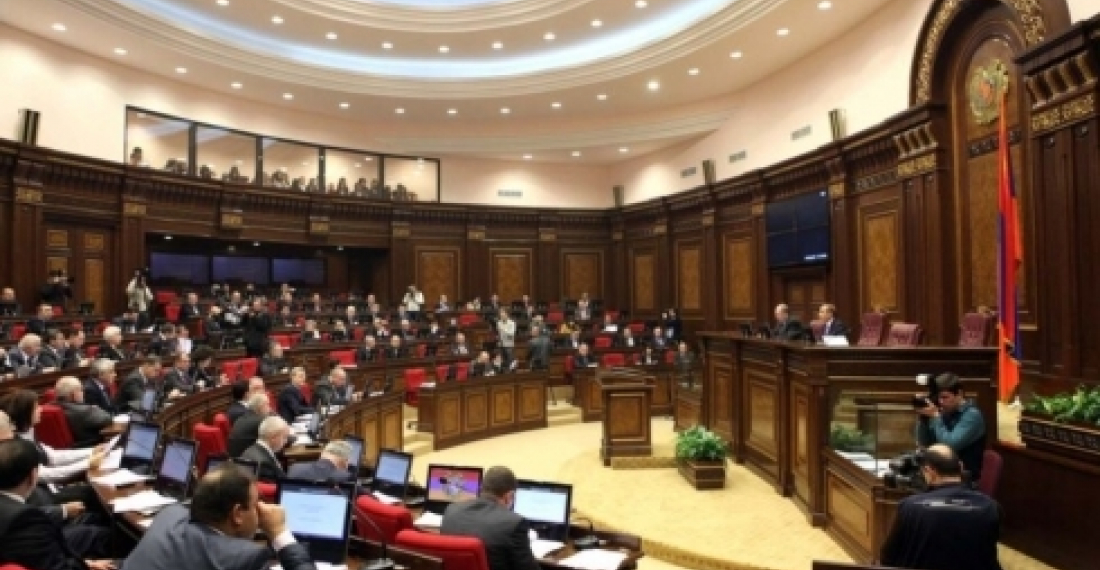The Armenian National Assembly has launched debates on a draft statement on extradition of Ramil Safarov, who killed Armenian officer Gurgen Margaryan, by the Hungarian authorities and his pardoning by the Azerbaijani president.
Calling Margaryan's murder a vicious and inhuman crime, Head of the Parliamentary Committee for Foreign Affairs Artak Zakaryan introduced the statement and added that the Government of Hungary as a host country did not provide security of the participants in an international event on its territory at a proper level. The Azerbaijani authorities constantly justified the murder of the Armenian officer and the criminal who committed that murder. Therefore, the authorized agencies of Hungary could not but realize that Safarov's extradition to Azerbaijan means his release and creation of a precedent to promote such crimes against Armenians committed on the ground of ethnic hostility. Pardoning of a criminal who was sentenced to life imprisonment for such vicious murder, his rewarding and promotion is a display of political cynicism with regard to the world community, the draft statement reads.
The draft calls that crime a result of xenophobia stirred up by the Azerbaijani authorities. "The decree of the Azerbaijani President (on pardoning) contradicts the humanistic goals of the Strasbourg Convention of the Transfer of Sentenced Persons of 1983 and the general principles of human rights. The National Assembly declares that the Hungarian authorities are also responsible for the given situation. The National Assembly condemns their actions and suspends official relations with Hungary at the level of parliaments," the draft statement reads.
The document says that Azerbaijan once against endangers the regional security and aggravates the atmosphere of anti-Armenian hostility and hatred, infringes human rights guaranteed by the international legal documents, as well as demonstrates its consistent policy aimed at breaking the negotiation process for peaceful resolution of the Karabakh conflict and challenging the efforts of the world community, in particular, the OSCE Minsk Group. "The atmosphere of hatred to Armenians enrooted in Azerbaijan at the state level once against proves that the Nagorno Karabakh Rpeublic cannot be part of
Azerbaijan irrespective of any status," the document reads.
The Parliament of Armenia urges all the countries committed to democratic values to condemn the deal of Hungary and Azerbaijan made on August 31. "We expect a symmetric response by the international parliamentary organizations and relevant distinct actions," the draft statement reads. To recall, 25 MPs have entered the list of the speakers at the debates on the draft.
Earlier on August 31 the Armenian authorities adopted a decision to suspend diplomatic relations and official contacts with Hungary. President of Armenia Serzh Sargsyan made public the decision at a special meeting with the heads of diplomatic missions on Friday after the Hungarian authorities extradited Azeri officer Ramil Safarov, who was sentenced by a Hungarian court to life in jail for killing sleeping Armenian officer Gurgen Margaryan with an axe in Budapest in 2004. Both the officers were undergoing an English language course under the NATO PfP program. The same day after Safarov's extradition,
Azeri President Ilham Aliyev decreed to pardon the criminal.
Parliament of Armenia launches debates on draft statement on extradition of Azerbaijani criminal Safarov by Hungary
Parliament of Armenia launches debates on draft statement on extradition of Azerbaijani criminal Safarov by Hungary







